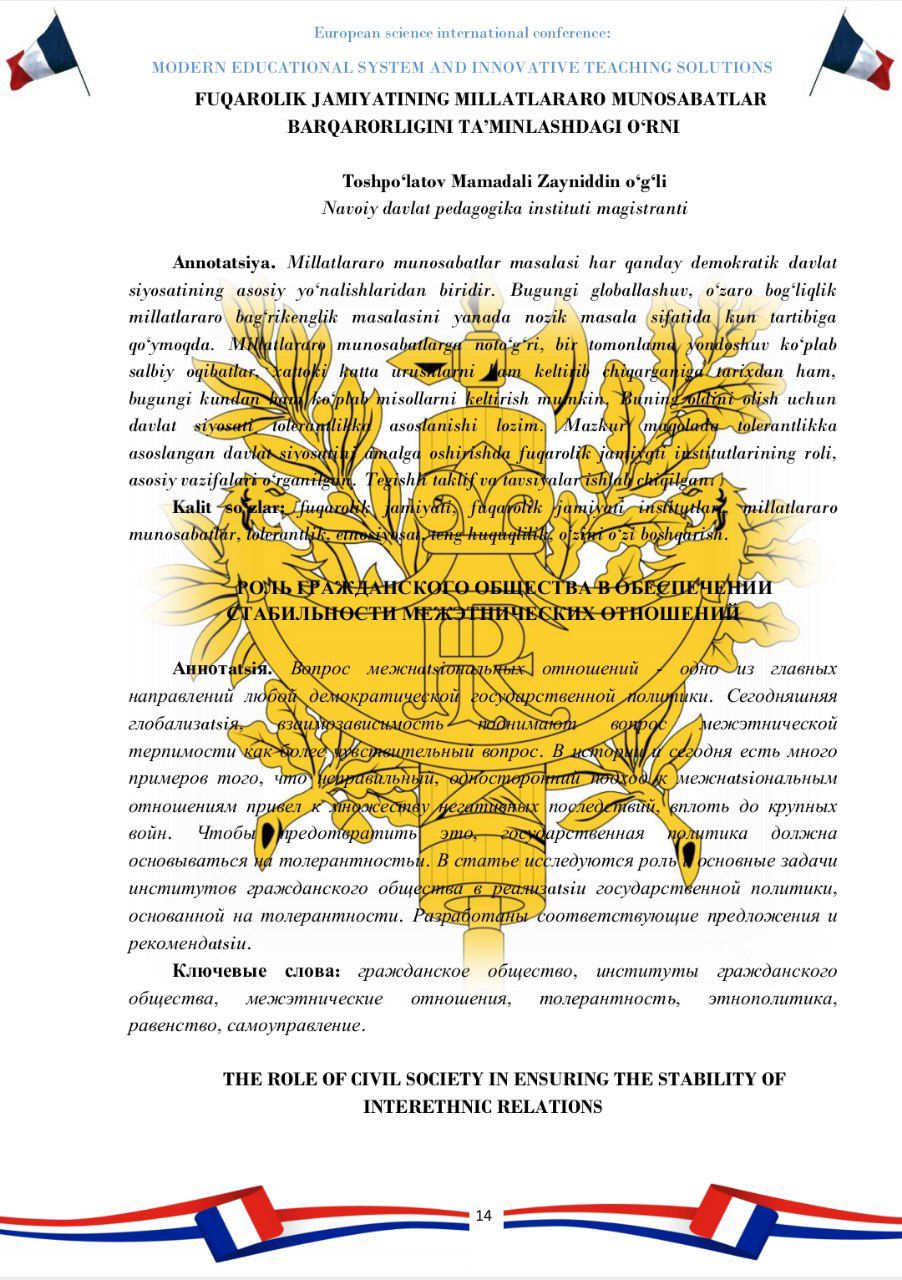THE ROLE OF CIVIL SOCIETY IN ENSURING THE STABILITY OF INTERETHNIC RELATIONS
Main Article Content
Abstract
The issue of interethnic relations is one of the main directions of any Democratic state policy. Today's globalization, interdependence puts the issue of interethnic tolerance on the agenda as a more sensitive issue. There are many examples, both from history and from today, that a wrong, one-sided approach to interethnic relations has caused many negative consequences, hattoki large wars. To prevent this, public policy should be based on tolerance. This article explores the role, main tasks of civil society institutions in the implementation of state policy based on tolerance. Appropriate suggestions and recommendations have been developed.
Article Details
References
Toshpo‘latov, M. (2023). HISTORY OF CIVIL SOCIETY CONSTRUCTION: CHANGES AND PROSPECTS. Modern Science and Research, 2(9), 9-13.
Toshpo‘latov, M. (2023). CHARACTERISTICS OF CIVIL SOCIETY IN THE MODERN ERA. Modern Science and Research, 2(9), 13-19.
Тошпулатов, М. З. (2023). Историческая роль молодежи в процессе построения гражданского общества в Узбекистане. Актуальные исследования, (44 (174)), 94-97.
Toshpo‘latov, M. (2023). FUQAROLIK JAMIYATI: TARIXIY VA ZAMONAVIY MODELLARI. Tadqiqotlar kutubxonasi, 1(6), 1-114.
Норов, Ш. С., Сувонова, Ж. Ш., & Тошпулатов, М. З. (2023). Государственная молодежная политика и ее историческое значение в контексте Нового Узбекистана. Инновационный потенциал молодежи: патриотизм, традиции, инновации.—Екатеринбург, 2023, 169-174.

